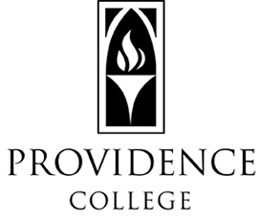Biographical note
Until 1945, Louis F. Budenz was a labor activist and prime supporter of the United States communist party. Returning to his early roots in Catholicism, he renounced the party and positioned himself as a strong anti-communist advocate. His role as a witness for the government in many trials and congressional hearings, which included his part as advisor to Senator Joseph R. McCarthy, led to the conviction and deportation of several communist party members. He was a professor and lecturer at a number of Catholic universities, and published six books on the dangers of communism.
On July 17, 1891, Louis F. Budenz was born in Indianapolis, Indiana to Henry Joseph and Mary Gertrude (Sullivan) Budenz. His early schooling was spent at St. John’s High School in Indianapolis, St. Xavier’s College, Cincinnati, and St. Mary’s College in Kansas. He later returned to his hometown where he earned a Bachelor of Law at the Indianapolis Law School in 1912.
As a young man he was impacted by the treatment and conditions of laboring people, which prompted his interest in the labor movement. He soon involved himself in publications and organizations, which included his ten-year position as editor for the Labor Age. Additionally, he was active in organizing union strikes, which included the Kenosha hosiery mill strike of 1928 in Wisconsin, the Patterson silk strike of 1930 in New Jersey, and the Toledo Auto-Lite strike of 1934. His involvement in these movements led to twenty-one arrests against him, though, he was acquitted of all.
In 1935 Budenz made his loyalty to communism public with a publication that appeared in the Daily Worker, along with his newly elected position as labor editor to the paper. In two years he was promoted to president and managing editor, while also taking on the position of editor for the Midwest Daily Record. Both spots were held until 1940.
Also in 1940, a publication appeared by Monsignor Fulton J. Sheen titled Communism: Answers to a Communist. In this pamphlet Sheen directs his words against several of Budenz’s pro-communist writings.
This, along with Budenz’s meeting with Sheen involving a discussion of communism and Catholicism, led to Budenz’s October 10, 1945 announcement conveying his rejection of communism and return to the Roman Catholic Church.
Also joining the church were his second wife Margaret (Rodgers) Budenz, and their three daughters Julia, Josephine, and Justine. They later had a fourth daughter named Joanna.
At this time he began his teaching career, beginning with Notre Dame University as professor of economics from 1945 to 1946. Then with positions at Fordham University lasting from 1946 to 1956, a brief stay at Selton Hall University in 1952, and Providence College in 1956. During these years and beyond, he published six anti-communist books, which highly contrasted his early pro-communist writings appearing in journals and pamphlets. His later publications include: This is My Story, 1946; Men Without Faces, 1950; The Cry is Peace, 1952; The Techniques of Communism, 1953; Ex-Red, 1954; and The Bolshevik Invasion of the West, 1965.
About a year following Budenz’s rejection of communism, he was recruited to testify at a number of communist trials and in front of several House and Senate committees.
Some of these trials include Dennis v. United States, the case against Owen Lattimore, and the 1950 hearings before the Subcommittee on the Investigation of Loyalty of State Department Employees, better known as the Tydings Committee, which was brought about by Senator Joseph R. McCarthy from his claim that there were a number of communists employed within the State Department.
Louis F. Budenz died April 27, 1972 in Newport Hospital in Newport, Rhode Island. The year prior to his death he received the honorary degree of Doctor of Political Science from Providence College.


